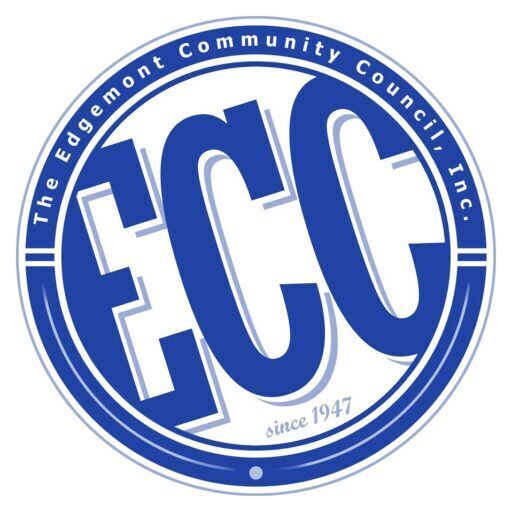More than six months after ECC president Bob Bernstein first presented it to them, the Greenburgh Town Board will hold its first public hearing Wednesday, June 10, on the Edgemont Community Council’s proposed law to give police the tools they need to shut down brothels fronting as massage parlors.
The board will also hold a public hearing at the same time on a more recent proposal from the Town’s Planning Board — a proposal the ECC has rejected as illegal, unenforceable and incapable of giving police the tools they need to shut down these brothels.
Efforts to address the problem of brothels fronting as massage parlors began last fall when police chief Chris McNerney told the ECC that Edgemont had become the illicit massage parlor capital of Westchester County. The ECC drafted the proposed legislation after Town Attorney Tim Lewis refused to do so, claiming that such legislation is preempted by state laws requiring that individual massage therapists be licensed by the state.
Mr. Bernstein based the ECC proposal on similar legislation adopted without legal challenge in the 1990s by the Town of Clarkstown in Rockland County and ona similar measure adopted without challenge a few years ago by the Village of Farmingdale on Long Island.
The planning board rejected the ECC’s proposal in favor of its own based on several grounds, including its opposition to requiring massage establishments to obtain a license from the Town before applying to the Town Board for a special permit to operate, citing the $500 proposed cost for the license. Mr. Bernstein pointed out, however, that the special permit that the planning board wanted to use instead was far more expensive, costing several thousand dollars.
Not before the public, however, is a new version of the proposal that was prepared and submitted to the town board four weeks ago by Mr. Bernstein in an attempt to address the criticism that the ECC proposal received from the Planning Board. Mr. Bernstein submitted the new draft after he and ECC vice president Howard Hirsch met at Town Hall with Chief McNerney and town board members Ken Jones and Kevin Morgan to discuss the two competing drafts.
“Passing the massage law we proposed six months ago is not only important to our quality of life here in Edgemont and indeed in the rest of unincorporated Greenburgh, but it is also important that we set a precedent for other communities to follow so that, though our efforts, and those of our neighboring towns and villages, we could together address the problem of human trafficking that these illicit facilities present,” Mr. Bernstein said.
“For these reasons, I felt that the ECC should go the extra mile to do everything we can to get the Town to adopt this measure,” he added, “so that we can assure Edgemont residents that, if we fail, we at least did everything we could to get it to pass.”
Mr. Bernstein said he prepared the new draft because Councilmen Jones and Morgan promised him and Mr. Hirsch they would use the new draft to try to come up with the four votes needed to approve the measure. Instead, they presented the new draft to Town Attorney Tim Lewis and Deputy Town Attorney David Fried, who have been staunch opponents of the ECC proposal and, at their suggestion, they decided to keep the draft to themselves.
Instead, they said they might use the revised version Mr. Bernstein prepared as something they could tweak and propose as their own compromise, after the close of the public hearing, assuming the town board concludes it wants to adopt something.
Four votes are needed to approve the ECC’s original proposal because, under the Town’s Zoning Law, if the Planning Board declines to recommend a proposed change to the Town’s Zoning Law, which is what happened here, such changes could only be adopted by a supermajority of the Town Board which means four out of the five votes are needed.
Among other things, the Planning Board criticized the ECC proposal for requiring that massage establishments obtain a license from the Town before getting a special permit. Mr. Bernstein pointed out that applying for a license would give police the tools they need to conduct background checks on prospective business owners.
The Planning Board dispensed with the license requirement and instead called for background checks to be conducted by police as part of the requirement for obtaining a special permit. Mr. Bernstein pointed out, however, that it is unlawful in New York to condition land use permits on criteria not directly connected to the real estate itself, and that almost all of the planning board’s criteria for obtaining a land use permit would be illegal and unenforceable.
The Planning Board also criticized the ECC proposal because of the $500 cost of obtaining a license. Mr. Bernstein pointed out, however, that the Town already imposes fees of at least $1,500 to obtain a special permit, which is what the Planning Board wanted to do, which meant the Planning Board’s proposal was far more expensive and burdensome on local businesses.
In the revised version of the proposed law, Mr. Bernstein proposed instead a special permit fee of $250 and a license fee of $100.
The Planning Board also criticized the ECC proposal for being too burdensome on solo practitioners. Mr. Bernstein’s revised version exempted solo practitioners from the law’s requirements. “The proposed legislation is aimed at brothels fronting as massage parlors,” Mr. Bernstein said. “Requiring compliance by solo practitioners does not seem to be necessary to accomplish the law’s objective, so I thought, at least for now, we should exempt them.”
